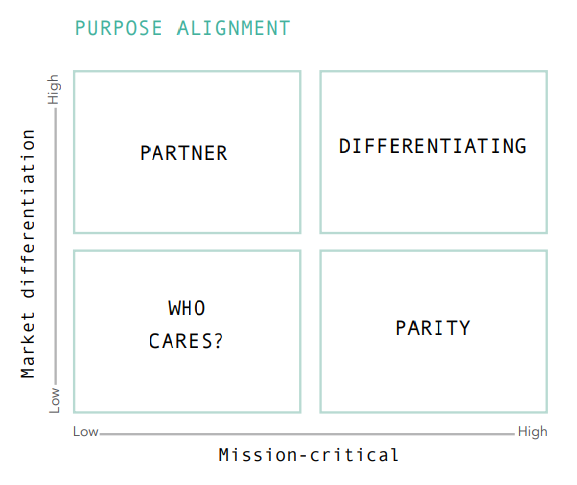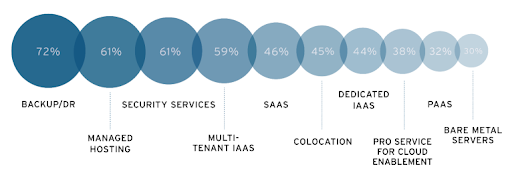Questions to Ask an It Managed Solutions Company
7 Critical Questions to Ask Before Using Managed Services
How businesses can choose the right managed service providers to develop and maintain a cloud-based IT infrastructure.
A Managed Service Provider (MSP) is typically an outsourced company that proactively manages – remotely in many cases – an enterprise IT infrastructure and systems under a subscription model. Many MSPs today are mostly "cloud service" providers.
An MSP can have a significant positive effect on a company's success, particularly due to its impact on the end-user system's UX. One critical advantage that MSPs provide is the agility without much of the risk one may encounter in the public cloud. Many companies lose significant amounts of data due to internal incidents such as human error, malware or hard drive crashes. Here are some critical reasons companies have for partnering with MSPs:
-
With increasing adoption of a hyperconverged infrastructure (HCI) and hybrid cloud, the role of administrators is changing. Organizations need managers who can take responsibility for the virtualization, compute, storage and networking on a unified level.
-
It's necessary to achieve overall simplicity and efficiency in operations by removal of silos in infrastructure services. MSPs bring centralization to infrastructure management.
-
The adoption of cloud computing brings greater levels of responsiveness to the business, and enables the IT infrastructure to keep pace with the levels of agility and automation that is seen in software. Having an MSP deploy and manage cloud solutions frees up in-house IT staff to focus on enhancing performance, availability, and recovery, and increase transparency in all of these.
MSPs offer a wide range of services from managed private cloud to desktops as a service to hybrid cloud that allow for bursting for seasonal workloads to hosted applications delivered over the internet. Each MSP brings their own unique value from agility to resiliency to security to simplicity. Organizations can choose an MSP that has demonstrated expertise in deploying, simplifying, and bringing down the TCO on their priorities for transformation – be it data management, uptime, compliance, or application development.
In order to determine which MSP is the best fit, key decision-makers should shore up on their research and take the time to ask vendors some pointed questions.
But first, a question for the key decision maker in the organization itself – we will call this Question Zero:
Q0. Which IT services can be better managed in-house and which ones need to be outsourced to an MSP?
In an article published in the NEXT magazine, Niel Nickolaisen presented a framework to help determine if IT resources are focused where they can deliver maximum business value, and where bringing in the right MSP would be beneficial.

This is a Decision Framework for Purpose Alignment using which the organization can identify their mission-critical processes that help them in differentiating their offerings. The right side of the chart throws up differentiators where they must innovate and do better than their competitors, as well as parity projects where reinventing the wheel isn't necessary, but things must keep going the way they are, or get incrementally better. Projects or processes that beget market differentiation but aren't part of the core mission are the right ones for which to consider an MSP, to start with.
Q1. What competitive advantage do managed services offer?
Every (successful) business has a unique competitive advantage that attracts its customers. For example, Southwest Airlines and Zappos pride themselves on superior customer service while Walmart banks on guaranteed low prices.
When choosing a managed service, it is important to determine which service offers the clearest advantage for the company's end-users or customers. IT departments in the enterprise might decide to use different services from multiple MSPs while SMBs might be better off using a bundle of services from a single MSP.
Decision-makers should dig deeper than surface-level advantages to determine which managed service will help maintain their competitive advantage or improve their USP.
For instance, a lower cost or flexible payment plan seems like a great thing. But, does this mean that services are limited or that other corners are cut? Are there additional services that would be valuable, such as round-the-clock customer service? Another important advantage to consider is the MSP's commitment to adopting the latest technology for constant improvement.
Q2. How can their service help businesses become more cloud-based?
One of the goals of outsourcing IT to an MSP has been to bring more cloud-like characteristics to their operations, achieving agility, scalability, and simplicity. The challenge for organizations is to maintain operations using their current hardware, networks, SAN/NAS, and applications, while parallelly trying out or deploying next-gen hyperconverged systems and infrastructure. This is where the MSP comes in, once the economic, cultural, staffing/organizational and process challenges are addressed.
Vijay Govindarajan, a leading innovator and strategist, said, "Strategy is really about how you create your future while managing the present."
MSPs help you address the "managing the present" part. For organizations that are already on the cloud, there are further services that are required, such as moving towards a hybrid cloud from a predominantly private or public one, or improving data security systems to protect the cloud from breaches. The MSP needs to address its primary weaknesses and concerns, including compliance, visibility, integration, data privacy, vendor lock-in and costs.
Q3. How will MSPs' assistance create a business partnership for collaboration?
Choosing an MSP is not just an investment; it is truly a business partnership that can have long-term effects on a company's growth and success. Nearly everyone within the organization will be using the MSP's services on a daily basis, so it is important to determine ahead of time whether they view this collaboration as a partnership or business transaction.
Decision-makers should ask for specific examples of ways that an MSP will actually encourage a long-term partnership. MSPs can assist organizations in finding solutions that improve their services or optimize their data storage systems.
Q4. What services don't fall within their areas of expertise?
Rather than asking what services a company is able to provide, it is easier to get a clearer picture of the MSP's offerings by asking what kind of organizations they service, in which verticals, and which objectives they help achieve for their existing clients. These questions are important to ask since providers will not typically focus on what they aren't the best at during their sales pitch. The Voice of the Service Provider report by 451 Research shows services that are commonly offered by MSPs.

Source: 451 Research
It is also necessary for business decision-makers to know whether or not there might be any limitations or delays in services or recovery that may have any effect on operations or upgrades down the line. While they may not need certain services at the moment, could it cause an issue in the future as their business continues to grow and expand?
Q5. Should you consider a layered approach to services where an MSP provides one part and other partners provide another?
It is important to find out if the "batteries are not included," so to speak, before signing any long-term contracts with a provider as not every MSP is able to provide the same level of services. Some MSPs require companies to contract out to services to handle areas that are outside of their expertise. For example, delivering a highly customized Unified Communication and Collaboration stack might be beyond the expertise for most MSPs.
This doesn't mean that an MSP should be discounted if they are unable to provide every single service. Decision-makers should consider how a layered solution using one portion from an MSP and the other from a specialized vendor (for example, for unified communication) whose solution can run on top of the MSP's service might work. They should compare the costs and service levels; in some cases, it may actually save them money to partner with external services on an as-needed basis rather than paying more for a specialized offering for another MSP.
Q6. How will their MSP reduce the workload?
In addition to cutting costs and providing assurance of data security, MSPs should also be able to ensure specific benefits that will impact the performance of the company in a positive way.
Decision-makers should ask specific questions to see how an MSP can impact employees' operational workload. For example, what automated services do they support? How can they help a company scale and grow? What tasks can they take care of or automate entirely?
MSPs will have to branch out in a number of ways to cater to specific needs. They will need to manage on- and off-premise environments and multi-cloud implementations by unifying varied platforms currently used to manage different workloads, while paying close attention to compliance and privacy requirements.
Q7. Which compliance frameworks do they support?
It is also important to get highly technical when it comes to compliance frameworks, as any mistakes can be extremely costly. There are several industry standards, specifications, legislation, and regulations – both upcoming and those already in place – that should be discussed: HIPAA, PCI and GDPR.
The importance of compliance will vary depending on the business' sector as well as the verticals it caters to, so decision-makers should double-check which will apply before diving into this question. Furthermore, an MSP should offer SLA options to guarantee that they will meet compliance requirements, preferably including those that are expected to come up over the next 12 months.
The Final Decision
Choosing an MSP for the long term is a decision that no business leader or CIO should take lightly; after all, these providers are responsible for incredibly important data that many businesses rely on for daily practices. Data and due diligence are essential to make a more informed choice, as is the case in any win-win vendor relationship.
Dipti Parmar is a contributing writer. She has written for CIO.com, Entrepreneur, CMO.com and Inc. Magazine. Follow her on Twitter @dipTparmar.
Featured Image: Pixabay
© 2019 Nutanix, Inc. All rights reserved. For additional legal information, please go here.
Related Articles
Questions to Ask an It Managed Solutions Company
Source: https://www.nutanix.com/theforecastbynutanix/business/7-critical-questions-to-ask-before-using-managed-services